This website uses cookies so that we can provide you with the best user experience possible. Cookie information is stored in your browser and performs functions such as recognising you when you return to our website and helping our team to understand which sections of the website you find most interesting and useful.
Monday 29 January 2018, 11:15 | By Andy Malt
Approved: Jenny Wilson
CMU Approved

Jenny Wilson has always been an artist who draws on difficult life experiences as subject matter for her songs. Her last album, 2013’s ‘Demand The Impossible’, was written and recorded while undergoing treatment for breast cancer. Her latest, ‘Exorcism’, however, deals with a subject even she was unsure about delving into – the aftermath of a sexual assault.
“This is the most difficult thing I’ve ever done”, she says. “In so many ways. At first, I actually didn’t know if I even wanted to go on with music anymore. Then, something terrible happened to me. I ended up at a crossroads. Either silent – or speaking. It was not an easy choice”.
She continues: “I didn’t want to talk. I didn’t manage to talk. But I had to talk. Not to bring justice or to take revenge. Nothing is ever as easy as it seems. I wanted to take back what I’d lost. I had to get rid of what was hurting me”.
The first single from the album – its opening track ‘Rapin*’ – is a bold and uncompromising piece of music, which comes with an animated video to match. Created by Swedish artist Gustaf Holtenäs, Wilson says of the video: “I wanted to make something awfully direct. Something you just can’t hide from or misunderstand. This song demanded a brutal video, and it had to be done in a beautiful animated style to reach the full power of the story”.
It does exactly as she says. It’s bold and uncompromising. As she has throughout her career, Wilson takes a difficult subject matter and places it within great music. It’s not an easy listen, and the video is not an easy watch, but there’s immense bravery and power in the telling of her story.
Watch the video for ‘Rapin*’ here:
Stay up to date with all of the artists featured in the CMU Approved column by subscribing to our Spotify playlist.
READ MORE ABOUT: Jenny Wilson
Monday 29 January 2018, 09:14 | By Andy Malt
Setlist: Enrique Iglesias, Little Mix, The Smiths
Artist News Business News Digital Gigs & Festivals Labels & Publishers Legal Live Business Setlist

CMU’s Andy Malt and Chris Cooke review key events in music and the music business from the last seven days, including the latest sales v licence litigation launched by Enrique Iglesias against Universal Music, an interesting legal case testing the responsibilities of concert promoters under the Equalities Act, and the very short lived almost Smiths reunion. Setlist is sponsored by 7digital.
Subscribe to Setlist
Listen to Setlist and sign up to receive new episodes automatically each week through any of these services…
Acast | Apple Podcasts | audioBoom | Deezer | Google Play | iHeart | Mixcloud | RSS | SoundCloud | Spotify | Spreaker | Stitcher | TuneIn
Stories discussed this week:
• Enrique Iglesias reckons misclassified streams cost him millions in royalties
• Little Mix lawsuit to test obligations of gig promoters under the Equality Act
• Smiths orchestral show collapses after original band members pull out
In brief:
• Spotify investor says streaming market will quadruple in size to $40 billion by 2025
• YouTube to start issuing ISNI numbers to creators
• Birmingham’s Rainbow Venues launches campaign to help fund appeal against closure
Also mentioned:
• Buy Chris’s new book on how streaming music services are licensed and where the money goes right here on Amazon
• Mark E Smith dies
• Attitude Is Everything DIY Access Guide
• Rainbow Venues’ Educate Not Revocate campaign
READ MORE ABOUT: Andy Rourke | Attitude Is Everything | Craig Gannon | Enrique Iglesias | LHG Live | Little Mix | Manchester Camerata Orchestra | Mark E Smith | Mike Joyce | Rainbow Venues | Sally Reynolds | Spotify | The Smiths | Universal Music | YouTube
Friday 26 January 2018, 14:18 | By Andy Malt
Two further women accuse Nelly of sexual assault
Artist News Legal Top Stories
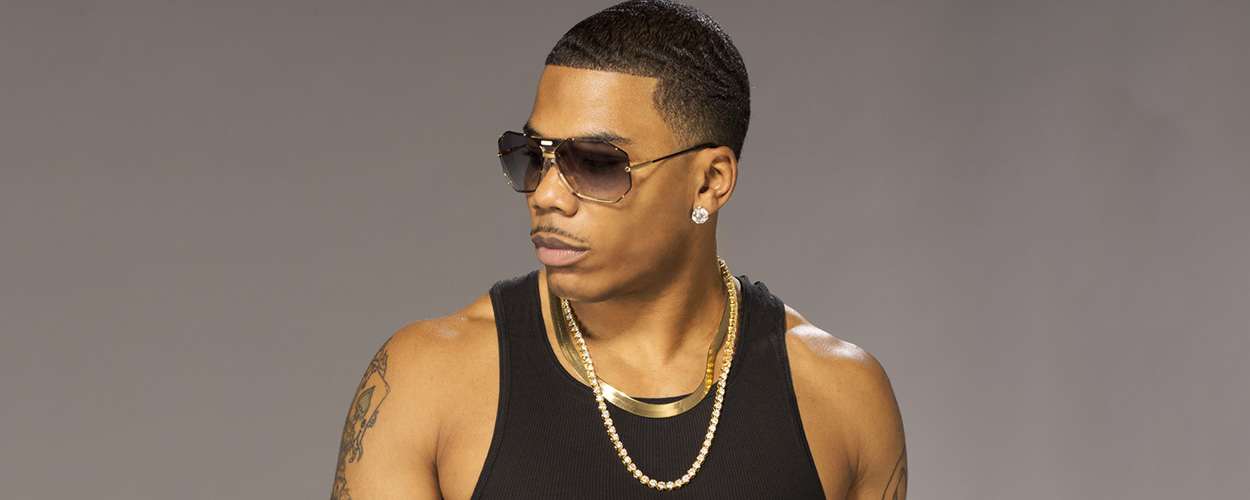
Nelly has been accused of two further instances of sexual assault in a new legal filing, which updates litigation originally launched against him last year.
Monique Greene countersued Nelly last month after he initially sued her for defamation. The defamation action related to Greene’s allegations that he had raped her on his tour bus back in October last year. He went legal after she declined to participate in a criminal investigation into the rape allegations.
In her updated lawsuit, Greene details accusations made by two more women, which she claims prove that the rapper has “a distinctive modus operandi, to use his status as a celebrity musical performer to sexually assault selected women who attend his concerts”.
Nelly was arrested on charges of rape after Greene called police in October, having been ejected from his tour bus. She says that she met Nelly at a club in Auburn, Washington where she worked and he was performing. After socialising with him, she and a friend were invited to an “after party”, which turned out to be on his tour bus. Once on board, Greene says that Nelly took her to his bedroom at the back of the bus, began masturbating in front of her, and then raped her.
Her lawsuit then states that, after she got out of Nelly’s bedroom, his entourage threw her off the bus, declaring that, because she was in a state of distress, she had become “a problem”. Nelly then threw a $100 bill out of the door after her and taunted her from the window. Initially calling an Uber to take her home, when the driver arrived she asked him to wait while she called the police. After interviewing both her and Nelly, he was arrested.
The rapper’s lawyer quickly put out statements denying that he had assaulted Greene, claiming that she was making her accusations in pursuit of fame and money. Nelly also issued a statement on Twitter saying that he was “the victim of a false allegation” and that he would “pursue every legal option” to clear his name.
Greene, meanwhile, fully cooperated with the police investigation and, according to her lawsuit, was interviewed by police under the condition of anonymity. However, the following day “the commander of the police department issued a statement to media advising that Ms Greene had met with the police and prosecutor the day before”.
Already identified as the alleged victim by people who had seen her leave the club with Nelly, she says that this opened her up to a barrage of attacks online. Although the police subsequently issued an apology for breaching her confidentiality, this is seemingly why she pulled out of the investigation, her lawyer stating that she felt that “the system was going to fail her”.
Although she seemingly then hoped to put the whole matter behind her, Nelly quickly sued for defamation. She responded with her own defamation suit, accusing Nelly and his lawyer of making false statements about her, which amounted to bullying a witness.
In the newly amended version of those legal papers, she now includes accounts of two other alleged incidents involving Nelly assaulting women. The women are not named, but both incidents took place in the UK. One at the Cliffs Pavilion in Southend and the other – according to The Guardian – at Koko in London, although the lawsuit does not specifically state this.
The alleged assault in London was against an American soldier based in the UK. After a meet and greet, it is claimed, he invited her and a friend back to his dressing room. After spending time together, he then invited them to an “after party”. It then became apparent that he expected to have sex with the woman, even though they had already been discussing the fact that she was married. He then put his hand up her skirt, at which point she grabbed his hand and pulled it away.
He again asked her to join him at the after party and offered to pay for her train fare the next day. She attempted to leave the room, but he closed the door. At this point, say the legal papers, his security arrived to see what was happening and the woman and her friend left.
The second alleged assault in Essex also took place after the woman in question attended a meet and greet event after the show with a group of friends. After talking for a while, Nelly invited her to an after party. She declined, but he then invited her to his dressing room. Once inside, he allegedly blocked the exit, dropped his trousers and began masturbating, saying “you want this dick, don’t you?’
The woman told him that she was not interested, attempting to diffuse the situation by explaining that she had a husband and three children. Nelly protested and attempted to undress her. After various attempts to evade his advances, it is claimed that she told him to “pull your trousers back up and fuck off”.
At this point, she says that the rapper’s demeanour changed and he clenched his fist. She asked if he was going to hit her, to which he responded, “no, I’m just frustrated. I’m not used to not getting my way. Just do it”. He then allegedly grabbed her head and forced his erect penis into her mouth. She managed to break away from him and get out of the room, with him shouting “cunt” after her.
Returning to her friends, she says that she was in too much shock to speak. Nelly then caught up to her and threatened, “I will find you”. She says she believes the assault would have continued further had she not managed to return to her friends. She also says that she considered going to the police, but felt that she would not have been believed.
The lawsuit states that the three accusations made against Nelly show a pattern of actions, in which he selects a female fan at a show, divides her from her friends and then often begins masturbating in front of her before assaulting her. Photographic evidence is also provided to show that the women had been with Nelly before their alleged assaults.
Greene is seeking damages for “personal damage, emotional trauma, humiliation, loss of reputation and loss of enjoyment of life”. She adds that she has lost earnings due to being barred from entering the club where she met Nelly and at least one other club in the area. She also temporarily dropped out of university due to the trauma, losing already paid tuition fees.
As well as this, she is requesting a specific injunction against “Nelly (and his penis)”, prohibiting him from sexually assaulting female fans after concerts. There is already a legal imperative to this effect, of course, under the criminal law. Although such an injunction may aid future civil action if he did not adhere to it.
Nelly has not yet responded to the new accusations.
READ MORE ABOUT: Nelly
Friday 26 January 2018, 14:15 | By Chris Cooke
EU to launch its own version of the piracy-focused Notorious Markets list
Business News Digital Legal

Good news for fans of lists of piracy websites! Who doesn’t love a good list of piracy websites? Everyone loves a good list of piracy websites. Got a loved one with a birthday coming up? Give them a list of piracy websites as a present and just watch how they respond. Good times.
Very soon there’ll be a brand new list of piracy websites to gift to friends and family. The European Union has announced plans to follow the American government in maintaining a regularly updated list of the websites around the world that most piss of copyright owners like record companies and music publishers.
The US government has been putting out its annual Notorious Markets list of intellectual property infringing websites for a while now. American copyright owners are invited to nominate sites for inclusion, some of which make it into the final document. Published by the office of the United States Trade Representative, the Notorious Markets report is mainly aimed at other governments around the world to help them “prioritise intellectual property rights enforcement efforts that protect American businesses and their workers”.
In the most recent edition, the music industry’s current top piracy gripe – streaming ripping – got a nice mention, while old favourite The Pirate Bay was also officially dissed once again. Elsewhere there was criticism for Russian social media firm vKontakte, even though it is now in business with the music industry, because Hollywood is still annoyed at all the movies that get shared across the social network.
In a statement earlier this week, the EU said that its new list will aim to “identify the marketplaces outside the EU where counterfeiting, piracy or other forms of intellectual property abuse are common practice”.
It added that “based on stakeholders’ input, the future watch list will help to raise awareness of consumers that might be buying products in those marketplaces, and encourage their operators and owners to crack down on intellectual property abuse”.
Though, as with the Notorious Markets report, other governments are also a target audience. The EU added: “The Commission will also monitor the measures taken by local authorities to reduce the availability of goods and services infringing intellectual property rights in identified markets”.
Providing the rationale for the project, the EU’s statement then noted how “intellectual property infringement is a particular scourge on European industry and hampers investment and employment in industries reliant on creativity and innovation”.
Copyright owners are invited to make submissions to the new piracy list project by the end of March. It will be interesting to see which sites and services they target, and in particular whether any of them are based in the US. Because of the international focus on the Notorious Markets list, the American anti-piracy document doesn’t deal with those copyright infringing operations in its own country.
READ MORE ABOUT: European Union | United States Trade Representative
Friday 26 January 2018, 14:14 | By Chris Cooke
Russell Simmons sued over rape allegations
Business News Industry People Legal
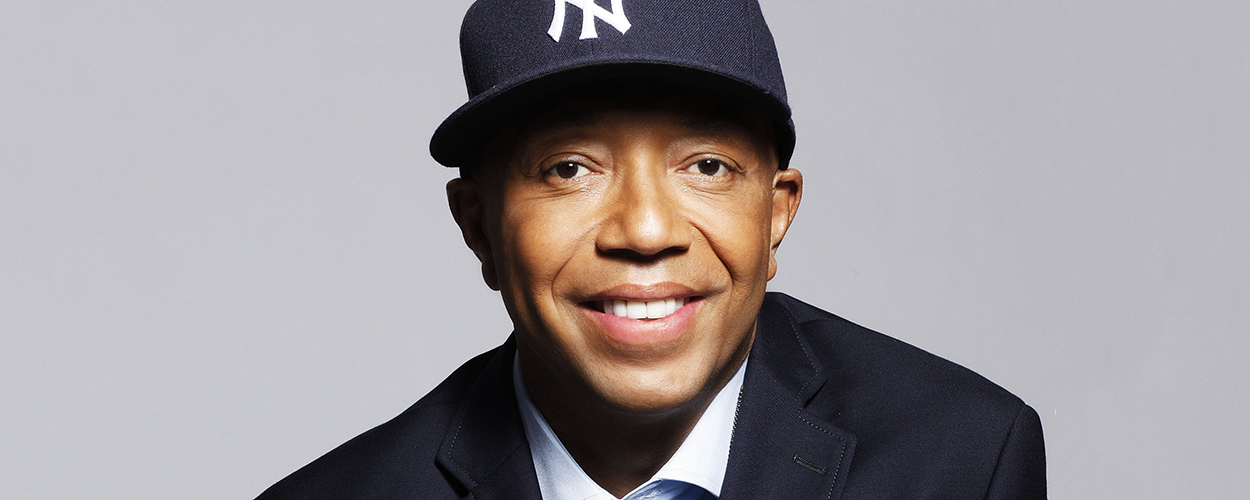
Hip hop mogul Russell Simmons is now facing legal action in relation to an allegation of rape. The lawsuit follows newspaper articles late last year in which a number of women alleged past sexual misconduct by the Def Jam co-founder.
The lawsuit has been filed by filmmaker Jennifer Jarosik, who claims that Simmons assaulted her at his home in LA after she met him there to discuss a documentary she was working on. According to The Blast, the lawsuit claims Simmons initially asked to have sex with Jarosik, but after she refused he became aggressive, pushed her onto his bed and proceeded to rape her.
The legal filing also claims that Simmons “historically thrived on the sexual exploitation of young women trying to break into the entertainment and music industry, in which young female artists are falsely promised opportunities and advancement by experienced and well-established men in power in the industry”.
Jarosik says that although she told some close friends about the incident at the time, she never took any formal action because she “felt somehow it was partially her fault since she was not strong enough to resist”. However, she was motivated to go public about the alleged attack following the other accusations made against Simmons last year.
He continues to deny all the allegations made against him. Responding to the new lawsuit, he told reporters: “I look forward to having my day in court, where, unlike the court of public opinion, I will have the ability to make use of fair processes that ensure that justice will be done and that the full truth will be known”.
Last year, when it emerged New York police were investigating some of the allegations that had been made against him, Simmons wrote on Instagram: “I will prove without any doubt that I am innocent of all rape charges. My intention is not to diminish the #MeToo movement in any way, but instead hold my accusers accountable. Again, this is not a movement against or even in conjunction with #MeToo. It’s just a statement about my innocence”.
READ MORE ABOUT: Russell Simmons
Friday 26 January 2018, 14:12 | By Andy Malt
Sasha signs to Minds On Fire
Artist News Business News Deals Labels & Publishers

Electronic music-focused publishing company Minds On Fire has signed Sasha to represent his music for sync placements.
“I am excited to be working with Minds On Fire”, Sasha tells CMU. “They understand electronic music and are hungry to add value to my catalogue”.
Minds On Fire A&R Director James Pitt adds: “Sasha is a dream signing for us. Not only is he producing amazing one-off tracks and outstanding live shows but his album projects have real depth and atmosphere, perfect for film and TV. Now is the time for Sasha as a composer to shine”.
Launched in 2011, Minds On Fire’s roster also includes Waze & Odyssey, Olubenga, Rob Harvey and Scuba. It also administrates publishing for labels such as Scuba’s Hotflush and Herve’s Cheap Thrills.
READ MORE ABOUT: Minds On Fire | Sasha
Friday 26 January 2018, 14:09 | By Chris Cooke
Sony expands alliance with Cuban music firm to cover publishing
Business News Deals Labels & Publishers

Sony has expanded its partnership with Cuban music company EGREM. The Sony Music record company has had an alliance with the Havana-based entity since 2015, and now the Sony/ATV music publishing business has announced an international licensing deal to cover EGREM’s songs catalogue.
Confirming the new alliance, EGREM’s MD Mario Ángel Escalona Serrano said: “The oldest record company in Cuba is honoured to share the opportunity to develop the joint licensing of our great [songs] catalogue with Sony/ATV Music Publishing. This relationship will expand the promotion and international dissemination of our musical heritage, as well as raise awareness of relevant Cuban authors and composers”.
Meanwhile Sony/ATV’s President of International, Guy Henderson, added: “It is a great pleasure and privilege for Sony/ATV to represent such a prestigious catalogue. Music is the lifeblood of the Cuban people and as such has produced so many talented artists and songwriters over several decades. Sony/ATV will now be in a position to take these writers and their music to the world, exposing the sounds of Cuba to new markets and providing fresh opportunities to EGREM and its quality roster of songwriters”.
READ MORE ABOUT: Egrem | Sony Music | Sony Music Publishing
Friday 26 January 2018, 13:56 | By Andy Malt
Gracenote partners with YG Plus to improve K-pop metadata
Business News Deals Digital

Music data firm Gracenote has partnered with South Korean music company YG Plus to provide data to digital music services that will make K-pop easer to discover globally.
K-pop has grown in popularity outside South Korea in recent years, of course, particularly in the US, and also in the UK. As Gracenote launches a new office in Seoul, it will apply its machine learning algorithms to build a database of descriptive metadata, aiming to better promote the South Korean pop music internationally.
“As a genre, K-pop has transcended Korea and hit the mainstream”, says YG Plus director Dong Hun Lee. “In order to capitalise on its global popularity, it is critical that we leverage rich descriptive data about the music to help surface K-pop songs in playlists globally. By working with Gracenote we will be able to help drive discovery of K-pop to millions of existing fans and cultivate millions more around the world”.
Gracenote’s General Manager For Music, Brian Hamilton adds: “As the leading distributor of K-pop, YG Plus will help Gracenote strengthen our Korean data coverage which, in turn enables us to deliver the most comprehensive K-pop solution to streaming music customers across the globe. As the database of record for the music industry, Gracenote Global Music Data will also help regional Korean streaming music providers prepare for broader digital music adoption and deliver improved listener experiences centred on smart playlisting and personalised recommendations”.
Among the descriptors Gracenote will seek out are genre, mood, era, origin, tempo and artist language. It will also track associations between different acts, improving search across an artists’ main releases, collaborations, remixes and live recordings.
READ MORE ABOUT: Gracenote | YG Plus
Friday 26 January 2018, 13:53 | By Andy Malt
Comedy to return to Radio 1
Business News Media
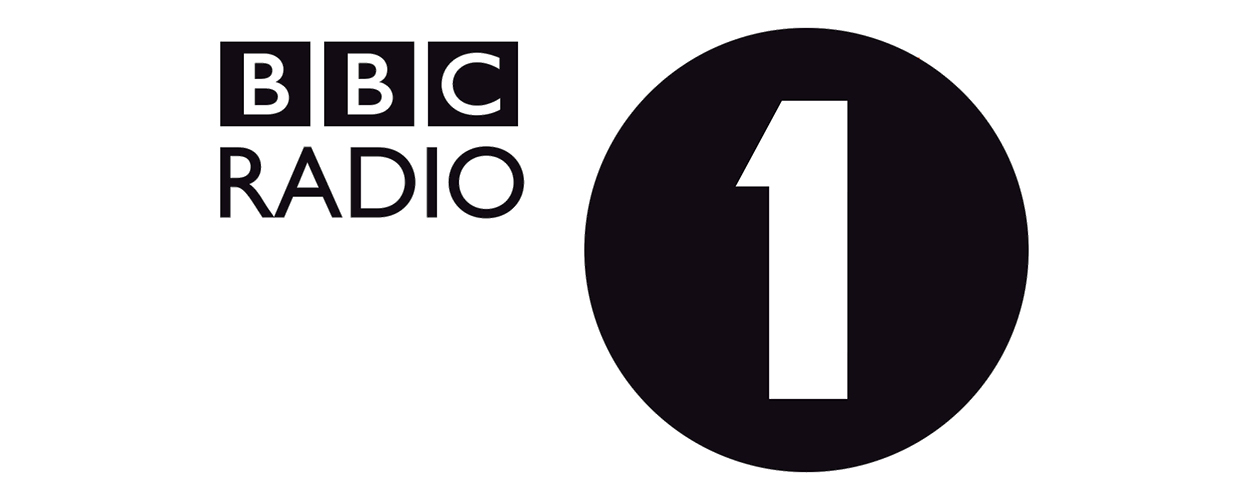
Listening to the likes of Lee & Herring, Chris Morris and Armando Iannucci on Radio 1 was pretty formative for me as a thirteen year old, so I’m pleased to hear that the BBC youth station is bringing comedy back to its schedule. And in the popular 3am-4am slot too.
A total of nine different series are set to go out over the course of this year, starting next month. Among the comedians commissioned to create shows are Ed Night and Lauren Pattison, YouTuber Riyadh Khalaf, ‘Beef And Dairy Network’* creator Ben Partridge, Jen Wakefield, and sketch group Birthday Girls.
As well as being broadcast in their unsociable FM slot, the shows will also be available as podcasts and on the BBC Radio iPlayer app.
Radio 1 Controller Ben Cooper says: “I grew up listening to ‘Blue Jam’ and ‘The Mary Whitehouse Experience’ on Radio 1, so it’s great to be able to give a new generation of young comedians an opportunity to make us laugh on a podcast from the BBC”.
The first show to air will be ‘Ed And Lauren Get It On’, which will run for twelve episodes from 7 Feb. Each week they’ll look at a different reason why being an adult is utterly rubbish.
Says Pattison: “I am THRILLED to be given the opportunity to bring a fresh and fierce voice to Radio 1 alongside my soon-to-be-partner in crime Ed. It’s a great chance for me to not only have some fun and maybe cause some light chaos, but to delve into some hot topics and burning issues in a way that’s brutally honest, opinionated and most importantly from the perspective of a young working class scamp like myself”.
Next up, ‘Niki & Sammay’s Peachy Podcast’ will be on the air from 22 Feb, and Ben Patridge’s** ‘Ray Moss: No Stone Unturned’ will be on in the middle of the night from 30 Mar. Each episode of the shows will be available as a podcast on the Monday of the week they air on the radio.
You can’t currently subscribe to any of these podcasts though, so don’t even bother looking.
*If you’re not already listening to the ‘Beef And Dairy Network Podcast’, you really should sort that out.
**Seriously, it’s so weird and funny. I love it.
READ MORE ABOUT: BBC Radio 1
Friday 26 January 2018, 13:52 | By Andy Malt
One Liners: Dua Lipa, Justin Timberlake, Lady Gaga, more
Artist News Brands & Merch Business News Deals Gigs & Festivals One Liners Releases

Other notable announcements and developments today…
• Pedro The Lion have signed to Polyvinyl to release their next album. “I am so THRILLED to be working with them”, says the band’s David Bazan.
• Guitarist and YouTuber Sarah Longfield has signed to Season Of Mist to release her next album. Label boss Michael Berberian says the deal came about after he saw one of her videos by accident: “My jaw dropped! Once the first surprise passed, my mind was reeling. Somebody who is playing on such a level at this age is called a ‘lifer’ and in it for the long run”.
• Dua Lipa is now using her face, ability to walk and completely lifeless music to hawk Adidas clobber.
Follow me to 1st place. #ORIGINALis @adidasOriginals 🏆 pic.twitter.com/yP9iScHITX
— DUA LIPA (@DUALIPA) January 25, 2018
• Justin Timberlake’s releasing a lot of new songs at the moment. I hope he’s not planning to release another double album. Anyway, here’s ‘Say Something’.
• Lady Gaga has released a new piano version of her song ‘Joanne’.
• Lil Wayne has released another new track from his upcoming ‘Dedication 6 Reloaded’ mixtape. Here’s ‘Bloody Mary’, featuring Juelz Santana.
• A$AP Rocky has released his second new track of the week too. Here’s ‘Above’.
• James Blake has flapped out a new single, ‘If The Car Beside You Moves Ahead’.
• Kali Uchis has released the video for new single, ‘After The Storm’.
• With their new album, ‘Catharsis’, out today, Machine Head have released another single from it, ‘Volatile’.
• The nominees for this year’s Nordic Music Prize have been announced. They are Alva Islandia, Astrid Swan, Björk, Fever Ray, Högni, Katinka, Kaukolampi, Kim Myhr, Mwuana, Solbrud, Susanne Sundfør and Yung Lean. The overall winner will be announced at By:larm on 1 Mar.
• Check out our weekly Spotify playlist of new music featured in the CMU Daily – updated every Friday.
READ MORE ABOUT: A$AP Rocky | Alva Islandia | Astrid Swan | Bjork | Dua Lipa | Fever Ray | Högni | James Blake | Justin Timberlake | Kali Uchis | Katinka | Kaukolampi | Kim Myhr | Lady Gaga | Lil Wayne | Machine Head | Mwuana | Pedro The Lion | Polyvinyl Records | Sarah Longfield | Season Of Mist | Solbrud | Susanne Sundfør | Yung Lean
Friday 26 January 2018, 13:47 | By Andy Malt
Beef Of The Week #389: Some Smiths v An Orchestra
And Finally Artist News Beef Of The Week Gigs & Festivals Live Business
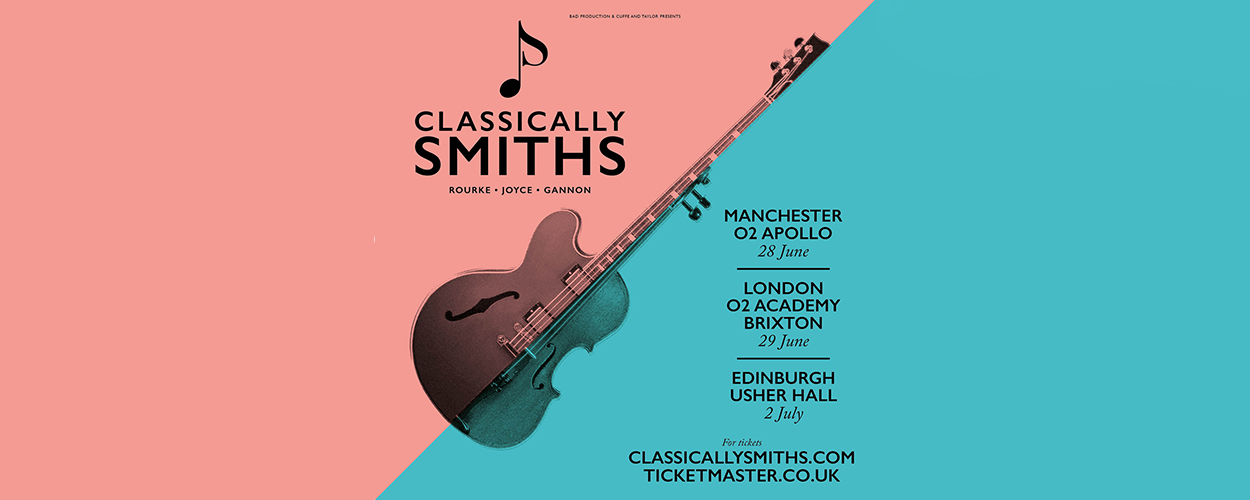
Some things are too easy to mock. Some things are so easy to mock that you mock them even though you don’t really want to. I mean, creatively speaking, there are definitely merits in partnering up the rhythm section of a classic band with an orchestra. But when they go big on the “reunion” thing, even though the project centres on the two less well known members of the classic band – and a guy who joined them for a few months in the mid-80s – well, there are jokes that it would be a shame to waste.
And so, when images emblazoned “Rourke. Joyce. Gannon” started to be shared online last weekend, it was too easy to smirk. A better starting point might have been to just announce the show itself in one go, without the build up teaser. Even better than that would have been to make absolutely sure that Andy Rourke was indeed planning to take part.
I’m getting ahead of myself a bit, but I’m sure you already know what I’m talking about. On Monday morning, it was announced that Smiths bassist Andy Rourke, drummer Mike Joyce and guitarist Craig Gannon (the latter being the one who was only a member of the band for a matter of months) would appear as part of a new show featuring orchestral versions of Smiths songs, under the name Classically Smiths.
The orchestra in question was the Manchester Camerata Orchestra, which is probably best known for its Hacienda Classical show. That too had an official endorsement, by way of the involvement of Hacienda DJs Graeme Park and Mike Pickering.
Shows like this have been growing in popularity in recent years, and while the involvement of someone with an actual connection to the music being reinventing is by no means a requirement, such alliances probably help garner interest. Also, since Pete Tong got in on the action with his Ibiza Classics show, it’s possible that expectations for these events have been raised – ie nostalgia only works if someone notable who was there first time round is on board.
Anyway, despite the urge to make fun of it all, as I say, I think that having the rhythm section of The Smiths performing while an orchestra handles the melodic side does sort of make sense. And if Morrissey and Johnny Marr were there (unlikely, I know, but if they were) it would be a very different kind of show.
All three of the band members involved with Classically Smiths were quoted in a press release for the concerts, Rourke apparently saying that he was “THRILLED” about it all. Unfortunately, no one seems to have told Rourke that that was how he was feeling, because another statement was quickly issued by him directly saying otherwise.
“I am deeply saddened that during the week of the death of my dear friend Dolores O’Riordan, that false statements are made on my behalf”, he wrote. “At no time did I give my consent for anyone in connection with this Classically Smiths project to act on my behalf or my name and nothing was ever confirmed, approved or contracted by me or my team”.
A rep for the bassist also told Pitchfork: “Andy Rourke was never officially confirmed to take part in, license or authorise the use of his name for the Classically Smiths concert. The production company had hoped Andy Rourke would be a part of the project, but at no time was it approved by Andy Rourke or his team”.
Despite these firm statements, there does seems to be some confusion over whether or not Rourke ever actually agreed to be involved. But we may never truly know what was or was not agreed behind the scenes. Maybe it doesn’t matter. Whatever, with Rourke out, Mike Joyce quickly announced his departure from the project too.
“It is with much regret that I have to announce that I will not be taking part in the show Classically Smiths”, he said. “I entered into agreement in good faith to perform these shows with the production company and Craig Gannon. Andy was asked originally but I wasn’t informed that he had passed on this project. Unfortunately it became apparent that Andy would not be taking part and was never a part of this”.
So, as far as Joyce is concerned, Rourke had indeed never been a part of the project, but he himself only discovered this fact just as the shows were due to be announced.
He went on: “I agreed with Andy that I would take part in the press conference and inform people that he would not be taking part. Unfortunately on the morning of the press conference I was informed I would not be able to say this. I therefore agreed to take part in the press interviews but did so without discussing Andy’s participation in the venture at any point during all TV, radio and print interviews”.
With Rourke’s quote still included in the press release on Monday, this suggests that the production company behind the show – the slightly ironically named Bad Productions – was hoping to talk him round. Something, it’s now clear, Rourke was not amenable to.
Therefore, Joyce continued: “After much deliberation and soul searching I have decided that without Andy, an integral part of why I agreed to take part in the first place, I have come to this difficult decision. I still believe the shows and concept to be a fantastic idea and wish them all the success they deserve”.
So, there you go. Two of the three out, but the show’s very much still on. At least briefly. Until Gannon also announced his departure in a now deleted statement on Facebook. He – at least at that point – seemed to be convinced that Rourke had been on board for the project, before bailing late in the day.
“Five months ago myself, Mike Joyce and Andy Rourke all agreed to be a part of this project as the core three which was why it all went ahead”, he said. “Unfortunately Andy pulled out at the very last minute”.
He too confirmed that he and Joyce had been told not to mention Rourke’s lack of involvement at the press conference, saying that “the last thing we wanted was to mislead anyone”.
Concluding, he said: “This is disappointing as we were all really excited about putting on these shows. I for one have been working solidly on this project for the last five months and it’s a shame that it’s fallen apart in this way”.
Really, the key part of an orchestral show is the orchestra, so you’d think it could all have still gone ahead. Particularly as it clearly still had the endorsement of Joyce and Gannon. Although, I suppose, it having based its promotion heavily on their involvement (however briefly), the sudden lack of any Smiths on stage would possibly taint the show.
Whatever, by Tuesday teatime an email had arrived from Bad Productions’ Joel Perry confirming that all the concerts were off. It really is quite impressive for a show to collapse so spectacularly within 36 hours of being announced.
In its own statement, the Manchester Camerata Orchestra said: “As a Manchester orchestra, we were naturally delighted to be asked to take part in the Classically Smiths shows this summer. We were not involved in the contractual discussions between the production company and former members of The Smiths, so we’re as disappointed as the fans to find out that the shows will not be taking place”.
So there you go. Remarkably, all this still doesn’t take the record for the most short-lived Smiths reunion. That still goes to an agreement to reunite the band between Morrissey and Marr a decade ago, which seems to have lasted a matter of hours. Possibly minutes.
READ MORE ABOUT: Andy Rourke | Craig Gannon | Manchester Camerata Orchestra | Mike Joyce | The Smiths
Friday 26 January 2018, 12:33 | By Paul Vig
Vigsy’s Club Tip: Roy Davis Jr at The Jazz Cafe
Club Tip CMU Approved
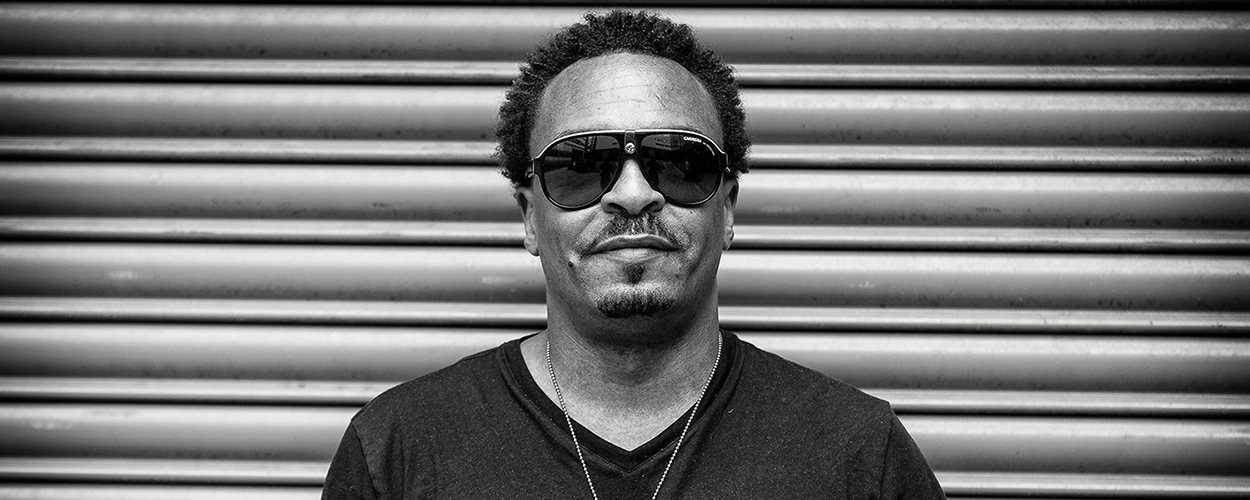
Another favourite to emerge from the 1990s Chicago house scene, Roy Davis Jr plays The Jazz Cafe this evening, with support from Dom Servini of Wah Wah 45s.
Influenced by the likes of Lil Louis and DJ Pierre, Davis Jr enjoyed chart success in the UK way back in 1997 via his breakout track ‘Gabriel’, which remains a definite anthem all these years on. Plenty of other releases have followed since, of course, both on his own label and via an alliance with XL Recordings.
A multiple sclerosis diagnosis in 2016 hasn’t stopped Davis Jr from both recording and performing, and it’s great to see him back in London to play this top little venue.
Friday 26 Jan, The Jazz Cafe, 5 Parkway, London, NW1 7PG, 10.30pm-3am, £15. More info here.
READ MORE ABOUT: Roy Davis Jr
Friday 26 January 2018, 10:22 | By Chris Cooke
Trends: Reviewing the sales v licence debate
CMU Trends

It’s four years now since CMU Trends last looked in on the sales v licence debate. But a new lawsuit filed by Enrique Iglesias against Universal Music is set to pose the question anew, this time very much from a streaming perspective.
ARTIST ROYALTIES
The sales v licence debate has been rumbling on since the rise of iTunes in the mid-2000s. It centres on the question of what royalties labels should be paying heritage artists on digital income when their record contracts pre-date the digital age and therefore make no specific reference to downloads or streams.
Understanding the dilemma requires some knowledge of record contracts. When an artist signs a classic record deal, the label controls any recordings made under that arrangement. Usually the record company becomes the owner of the copyright in those recordings and as such enjoys the controls that come with the copyright, so the exclusive right to copy, distribute, rent out, adapt, perform and communicate the music.
The label then exploits those controls for profit, by making copies of recordings and selling them to music fans, or by allowing third parties to copy, distribute, rent out, adapt, perform and/or communicate tracks in return for a licence fee. The label will then be contractually obliged to share any monies generated with the artist. But on what terms? How is that money shared?
With the exception of income generated by things like radio and the public performance of music – where the artist’s share is dictated by law under the Performer ER system – how the money is shared out between artist and label is set out in each individual record contract, and therefore varies from deal to deal.
Firstly, the label will usually be able to recoup some of the costs it incurred at the outset of the deal. Any cash advance paid to the artist will almost always be recoupable, but other costs covered by the record company may also need to be paid back out of future income. The label may also be able to apply certain discounts and deductions before calculating what the artist is due.
The key royalty terms in the contract will usually provide the artist with a percentage share of any income. However – and this is key to the sales v licence debate – what percentage is paid will often vary according to how revenue has been generated. So the share of the money received by the artist may differ on a CD sale versus a download sale versus a compilation placement versus a sync deal.
Every record deal is different, both in terms of the way money is shared out, and the way royalty rates are defined and described. Though a common distinction in old contracts was between ‘sales income’ and ‘licence income’.
SALES V LICENCE
Sales income would traditionally cover scenarios where the label directly pressed copies of a recording onto vinyl or CD, and then sold those recordings via a retailer. Licence income would cover scenarios where the label gave a third party permission to exploit the controls of its copyright. So for example, when a track is included on a compilation put out by another label, or a sync deal, where a movie producer, games publisher or ad agency gets permission to synchronise a track to video.
Generally, artists would receive a much bigger share of the money on licence income versus sales income. So, in a 1990s major label record contract in the UK, the royalty paid to the artist on sales income would likely be around 15%, whereas with licence income it would probably be closer to 50%.
This difference was in no small part down to the fact that the label had to do a lot more work to generate sales income: ie producing, manufacturing, distributing and marketing the physical releases. Therefore, the label argued, it should see a bigger share of the money when revenues were generated that way.
It’s also worth noting that up until the 2000s, the record industry was primarily in the sales business. The vast majority of income was made selling physical discs, and the vast majority of a label’s operations would be focused on that activity. Therefore record deals were being much more generous to artists on what were basically periphery revenue streams, while keeping the majority of core revenue streams.
DOWNLOAD ROYALTIES
When the download boom began in the mid-2000s and suddenly iTunes was a key revenue stream, labels had to decide how to share that income with artists whose old record deals made no specific mention of digital music.
Most labels decided to define downloads as a sale and therefore pay the artist on iTunes income the same royalty they were receiving on CD. The argument went that when MP3s (or – technically on iTunes – AAC files) are sold through a download store, that is simply the digital equivalent of selling a CD in a record shop, and therefore downloads should be treated as sales for royalty purposes.
However, many artists with pre-digital record contracts – or, more to the point, their lawyers and managers – hit out at this assumption. After all, they argued, the deals done between the record companies and Apple were licensing deals. iTunes had a licence from the labels allowing it to make available recordings to the public, and in turn to allow its customers to copy and communicate individual tracks by downloading them. The record companies were then paid a licence fee in return for all that permission giving.
So, for those artists with an old record contract that made the sales v licence distinction – or something like it – there was an argument that iTunes money should be treated as licence income and therefore the higher licence royalty should be paid. Which, remember, could mean the artist receiving 50% instead of 15%.
Over and above the legalities of what any one artist contract said, many of the managers and lawyers who made this argument had another agenda. They reckoned that with the shift to digital, the costs of getting new music to market were coming down, and therefore the risks the label was taking on new releases were now lower.
Therefore, it only seemed fair that artists should see a bigger share of any subsequent income. The sales v licence argument was one way that artists might secure this bigger share, by interpreting their record contracts in a way that already providing a higher royalty when no physical products were being created.
THE DOWNLOAD ROYALTY LAWSUITS
Needless to say, few labels agreed with the artists who reckoned that they should be getting a 50% licence royalty on downloads.
Some did concede that their costs and risks would be reduced once the shift to digital was complete, and therefore there might be a case for paying a higher royalty on download revenue to artists on old record contracts. Though, the labels would usually add, their costs and risks weren’t that much lower than in the physical era, and therefore a shift from 15% to 50% on downloads wasn’t feasible.
As for the contractual interpretation side of the sales v licence debate, some labels maintained that their licensing deals with Apple weren’t really licensing deals. Even though they were clearly licensing deals. Others argued that, had downloads existed when these old record contracts had been written, it seems certain the label would have grouped that revenue stream with CDs and not with compilations and sync deals.
Unsurprisingly, in the US this dispute went legal. Although not the first lawsuit, the highest profile to date was the legal action pursued by Eminem collaborators FBT Productions against Universal Music’s Interscope. FBT Productions had a stake in Eminem’s Interscope-released records and argued that the major should be paying it a licence royalty on download income rather than a sales royalty.
FBT Productions ultimately prevailed in that lawsuit, resulting in a flood of litigation from other heritage artists eager to use the Eminem case as a precedent that labels should be paying higher licence royalties on all download income.
Some of those cases became class actions, meaning that any act with a similar record contract to those artists launching the litigation could benefit from any successful ruling. For a while it looked like many heritage artists could see their download royalties increase. In many cases they did, but generally only by a few percent.
While it seems certain that bigger name heritage artists – on the back of the FBT Productions ruling – probably secured much better rates via confidential back room deals, when the class actions were settled in public download royalties only rose slightly. So that artists on a 15% CD royalty might see something like 18% on download income. It wasn’t quite the outcome many managers of heritage acts had hoped for.
WHAT ABOUT STREAMING?
Most of the lawsuits filed on the sales v licence issue focused on download income. But, by the time many of them were ultimately settled, the download business had already peaked, and the streaming market was about to boom.
Most labels likewise pay a sales royalty on streaming income – or, where a slightly higher download royalty has been agreed and/or applied, that will also likely be paid out on monies generated by Spotify et al.
However, many managers and lawyers argue that, even if there was a case for treating downloads as a digital version of a sale, once you shift into streaming there is an even stronger case for saying this is licensing income and therefore the higher licence royalty should be paid out. If anything streaming is closer to radio than selling CDs, and on radio artists usually see 50% of the money (albeit under the aforementioned Performer ER system).
One of the first cases to raise the sales v licence question specifically with streaming in mind was a dispute between 19 Recordings – which represents a number of former finalists from the ‘American Idol’ programme – and Sony Music – which was the original label partner of the talent show franchise.
19’s lawsuit against Sony had many elements to it, including a number of other gripes with the way the major paid and reported royalties to the former Idols. It also raised questions about whether Sony should share kickbacks it receives from streaming services over and above payments directly linked to specific streams, such as equity in the streaming start ups or advances that are never allocated to specific track usage.
It also discussed what royalty should be paid to the artist on streams, given the Idol’s record contracts didn’t specifically talk about streaming income. Just like the earlier lawsuits focused on download monies, 19 argued that Sony’s deals with the streaming platforms were clearly licensing arrangements, therefore streaming income was licensing income, and therefore the higher licence royalty should be paid.
For a time it looked like we’d get some judicial scrutiny on this point from this case. Sony mainly returned to the argument that its licensing deals with Spotify weren’t really licensing deals, but distribution deals, which meant it was selling rather than licensing music. A game of semantics therefore ensued as the case went through the motions. Then earlier this month it emerged an out of court settlement had been reached in 19 v Sony, which means no judicial opinion on sales v licence will come out of the dispute.
ENRIQUE IGLESIAS V UNIVERSAL MUSIC
The settlement of the 19 v Sony case is why this week’s legal filing by Enrique Iglesias against his former record company, Universal Music, is so interesting. It is primarily focused on how streaming income should be shared under the terms of his 1999 and 2010 contracts with the major, neither of which specifically mention streams. (As an aside, that the 2010 agreement doesn’t explicitly cover streaming income seems like quite an oversight.)
Iglesias’s contracts provide different royalty rates for different uses of his recordings, with a lower ‘album royalty rate’ for sales, and a 50% rate for licensing scenarios. In his new lawsuit, filed in Miami, Iglesias’s specifically references a catch all ‘any other use’ clause which provides a 50% royalty. His lawyers argue that, because streams are not specifically mentioned elsewhere in either contract, this clause should apply to streaming income, and therefore a 50% royalty should be paid.
Interestingly, it seems that Iglesias was initially paid the higher rate on streams by Universal for some of his recordings. He has actually released records for a number of Universal subsidiaries. According to a footnote in the lawsuit, for a time Interscope – which initially released his English language albums – was paying the 50% rate on streams. However, in 2016 it switched to paying the lower album royalty rate on streaming income, without explanation. We assume the lower rate was paid by the other Universal labels he worked with on streaming income throughout.
So, will this be the case that provides some judicial opinion on the sales v licence question from a streaming perspective? Probably not. Enrique Iglesias is a big enough star that it seems likely Universal will agree to a generous confidential back door deal that will stop the matter being properly discussed in court. Even if it was, the major would almost certainly argue that this case hinges on peculiarities of Iglesias’s record contracts, and any ruling in his favour wouldn’t set a precedent.
Iglesias’s lawyer does not agree. As the lawsuit was filed, he told journalists: “Despite [his] record-breaking success, Universal has wrongly insisted that artists like Enrique be paid for streams in the same manner as they are paid for physical records despite the fact that none of the attendant costs – production, distribution, inventory, losses – actually exist in the digital world. This is not what Enrique’s contract, or the contracts of many other artists, call for”.
He went on: “Artists, producers and songwriters should benefit from the reduced costs of streaming, not have their musical works spin unwarranted profits. Universal has long ignored, and is now attempting to distort, the clear terms of its artist agreements so that it alone reaps the savings from digital streams. After lengthy efforts to have Universal honour its contractual obligations, Enrique’s team regrettably concluded that he had no choice but to file this lawsuit”.
THE DIGITAL PIE DEBATE
The sales v licence dilemma is one part of the wider digital pie debate that CMU Trends has considered before. Which is to say, is the way streaming income is shared – on average – between record labels, artists, songwriters and music publishers fair?
In most – though not all – cases, the labels see the biggest cut. Therefore labels generally argue the current system is fair. Meanwhile artists, songwriters and music publishers argue the digital pie should be sliced differently.
Having streaming revenue treated as licence income across the board would immediately see a re-slicing of the pie to the advantage of heritage artists (some of whom, it should be noted, will be on a sales royalty even – and much – lower than 15%, depending on how old their record contracts are).
There are other ways artists could see their cut of streaming money go up. Applying the Performer ER system to streaming in some way would mean artists (including sessions musicians) would have a statutory right to streaming royalties, in addition to any contractual right. Meanwhile, some sort of arbitration system whereby old record contracts could be revisited and revised to suit the digital age would be another approach.
Both Performer ER on streams and arbitration on old deals have been considered in Europe as copyright law is reviewed there. Alhough when the new copyright directive goes through it is unlikely to include anything on the former, and it’s not clear how useful the proposed ‘contract adjustment mechanism’ will be in achieving the latter.
Therefore, so long as the Iglesias lawsuit is active, many managers and lawyers will be watching with interest this latest chapter in the sales v licence debate.
READ MORE ABOUT: Enrique Iglesias | Universal Music
Friday 26 January 2018, 09:00 | By Chris Cooke
CMU Digest 26.01.18: Spotify, YouTube, Little Mix, Kim Dotcom, Rainbow Venues
CMU Digest

The key stories from the last week in the music business…
An investor in Spotify predicted that the streaming market will quadruple in size to $40 billion by 2025. David Fiszel of New York-based Honeycomb Asset Management made the prediction in a letter to his financial backers last year, but that note was made public this week via Business Insider. Of course, investors in Spotify need Wall Street to be optimistic about the future of streaming as the digital firm prepares to list on the New York Stock Exchange. Fiszel reckoned the currently loss-making streaming services would become hugely lucrative in the years ahead. He wrote: “Growth is open-ended and the ‘total addressable market’ is larger than investors expect”. [READ MORE]
YouTube announced it had become a registration agency for the International Standard Name Identifier system, and that it will be encouraging all creators on its platform – including musicians – to start using ISNI codes. These are codes used to identify individual creators in any creative discipline. Launch in 2011, the ISNI system aims to ensure creators with the same name can be distinguished. The music industry hasn’t really adopted ISNI as yet, instead using its own existing code systems for identifying artists (IPN) and songwriters (IPI). It remains to be seen if YouTube forcing ISNIs on everyone will result in the system being more widely adopted in the music community. [READ MORE]
A lawsuit in relation to a Little Mix show could test the obligations of concert promoters under the 2010 Equality Act. Promoter LHG Live is facing legal action from Sally Reynolds, the mother of a Little Mix fan, who is deaf and who accompanied her daughter to one of the group’s shows last year. She requested a British Sign Language interpreter for her and two friends, who are also deaf and who attended the show with their respective children. LHG Live was initially reluctant to provide a BSL interpreter at its expense, though under the threat of legal action it did. However, the interpreter was only provided for Little Mix’s set, not the support acts. Reynolds is now taking further action, arguing that under the Equality Act – which says companies must make reasonable adjustments to ensure that disabled customers are not at a disadvantage – LHG Live was obliged to provide a BSL interpreter for the whole show. [READ MORE]
Kim Dotcom announced he was suing the New Zealand government over his arrest in 2012 in relation to his former business MegaUpload. On the sixth anniversary of the US-led MegaUpload shutdown – which saw the file-transfer platform taken offline on copyright grounds – Dotcom repeated past allegations that NZ authorities broke their own rules when they helped the Americans target him and his business. To that end he is suing for the billions he reckons he lost as a result of their actions. The US is still trying to extradite Dotcom and his former MegaUpload colleagues so that they can face charges of copyright and other crimes in an American court. [READ MORE]
Rainbow Venues in Birmingham launched a fund-raising campaign to try and fight a decision last year to revoke its licence. The local authority took away the clubbing complex’s licence because of two drug-related deaths on its premises. The case echoes that of Fabric in London. As with Fabric, many have pointed out that Rainbow Venues operated best practice anti-drug policies, and that closing venues like this because of isolated incidents – however tragic those incidents may have been – isn’t an effective way to ensure the safety of clubbers. Rainbow Venues is raising money to fund its appeal against the council’s decision, and to ensure it and its suppliers can stay in business during the appeals process. [READ MORE]
The big deals from the last seven days in the music business…
• Childish Gambino allied with Sony Music’s RCA [INFO]
• Stormy allied with Warner’s Atlantic UK [INFO]
• Warner/Chappell signed Moss Kena [INFO]
READ MORE ABOUT: Honeycomb Asset Management | Kim Dotcom | LHG Live | Little Mix | MegaUpload | Rainbow Venues | Spotify | YouTube
Thursday 25 January 2018, 12:51 | By Chris Cooke
Enrique Iglesias reckons misclassified streams cost him millions in royalties
Business News Labels & Publishers Legal

Good news for avid collectors of sales v licence lawsuits. Sony Music may have settled its royalties battle with a bunch of American Idols, but now Enrique Iglesias has sued Universal Music over the way the mega-major classifies his streams for royalty purposes. Iglesias reckons that classification is in breach of his record contract and has cost him millions.
As the recorded music business has shifted over to digital, there has been much debate over how record companies share download and streaming income with heritage artists whose record contacts don’t specifically reference such revenues.
Record contracts usually provide artists with a percentage share of any money their recordings generate. However, the percentage paid to the artist often varies according to how the money is generated. A traditional distinction was between sales income (eg selling CDs) and licence income (eg sync deals). A common royalty on the former was 15%, while on the latter 50%, so these distinctions make quite a big difference for the artist.
Labels in the main have treated downloads as sales income, even though the deals done between the record companies and the download stores are licensing deals. That led to a flurry of lawsuits, mainly in the US, of which the FBT Productions case against Universal in relation to Eminem’s recordings was the highest profile. Despite all that litigation, most artists saw their download royalties increase by only a few percent, a long way off the 50% rate that was commonly assigned to ‘licence’ income.
What about streams though? How should streaming income be treated when it comes to paying royalties on old record contracts? Most of the big cases on sales v licence to date focused on downloads not streaming. That made the legal battle between 19 Recordings – representing various finalists from ‘American Idol’ – and Sony Music interesting, as it included the argument that a higher licence royalty should be paid on streams. But earlier this month it emerged that that lawsuit has been pretty much settled out of court.
This brings us to the lawsuit filed by Iglesias in Miami yesterday. The case is very much focused on streaming monies and how streams are defined by a label when such income is not specifically mentioned in a record contract. Neither of Iglesias’s two deals with Universal Music specifically mentions streaming income. No, not even his second deal that was signed in 2010. Which seems like quite an oversight for such a recent contract.
Cases of this kind are all about contractual interpretation, and therefore centre on the specific wording of Iglesias’s two record contracts with Universal. While much of the lengthy lawsuit that was filed yesterday is dedicated to running through all of the music star’s multifarious successes, a little time is dedicated to specific contract terms.
In particular, a catch all ‘any other income’ clause in the original 1999 contract. According to the lawsuit, that clause said that monies generated by “any type of use not specifically covered” elsewhere in the contract would result in a royalty payment to Iglesias of 50%. And that, the lawsuit notes, is substantially higher that the standard ‘album royalty rate’ contained elsewhere in the deal.
Given that streams aren’t specifically mentioned in either the original 1999 contract or the subsequent second contract in 2010 (downloads are, but not streams), Iglesias’s lawyers reckon that he should have been getting the 50% “any type of use not specifically covered” royalty on all the streaming monies generated by his records. But he has not.
Iglesias, therefore, has been significantly underpaid because of – says the lawsuit – “Universal’s improper crediting of streams at the incorrect album royalty rate, which is less than a fraction of the 50% streaming royalty”. I’m not sure anything can be less than a fraction. That’s just another smaller fraction surely? But we get the point.
Actually, interestingly, in a footnote, the lawsuit states that Universal’s Interscope label – which released Iglesias’s English language albums under the first part of his deal with the major – did initially pay the higher 50% rate on streams. The other Universal subsidiaries which released his Spanish language albums and later records presumably did not.
Says the legal filing: “Up until approximately 2016, Interscope properly recognised and credited Iglesias’ streaming royalties at 50%. However, upon receiving a directive from Universal, Interscope – without consulting or otherwise notifying Iglesias – began crediting streams at the incorrect, lower record royalty rate”.
Given the managers and lawyers of many heritage artists reckon the sales v licence question was never properly addressed, despite all the lawsuits on download royalties Stateside, this new case will be interesting to watch. Although it also includes a dispute over Iglesias’s audit rights, it is very much focused on how streaming income is defined in old (and, as it turns out, not so old) contracts that don’t talk about streams.
Though, usually when it’s mega-star artists who sue, a confidential out of court settlement follows, so that no precedent is set that may apply to other artist deals with similarly written clauses. Nevertheless, this dispute will be one to watch. Certainly Iglesias’s legal rep James Sammataro reckons the dispute could inform other heritage artists with grievances over their share of streaming income.
He told reporters: “Despite [his] record-breaking success, Universal has wrongly insisted that artists like Enrique be paid for streams in the same manner as they are paid for physical records despite the fact that none of the attendant costs – production, distribution, inventory, losses – actually exist in the digital world. This is not what Enrique’s contract, or the contracts of many other artists, call for”.
“Artists, producers and songwriters should benefit from the reduced costs of streaming, not have their musical works spin unwarranted profits”, Sammataro continued. “Universal has long ignored, and is now attempting to distort, the clear terms of its artist agreements so that it alone reaps the savings from digital streams. After lengthy efforts to have Universal honour its contractual obligations, Enrique’s team regrettably concluded that he had no choice but to file this lawsuit”.
READ MORE ABOUT: Enrique Iglesias | Universal Music
Thursday 25 January 2018, 12:48 | By Chris Cooke
Music Modernization Act introduced into US Senate
Business News Legal Live Business
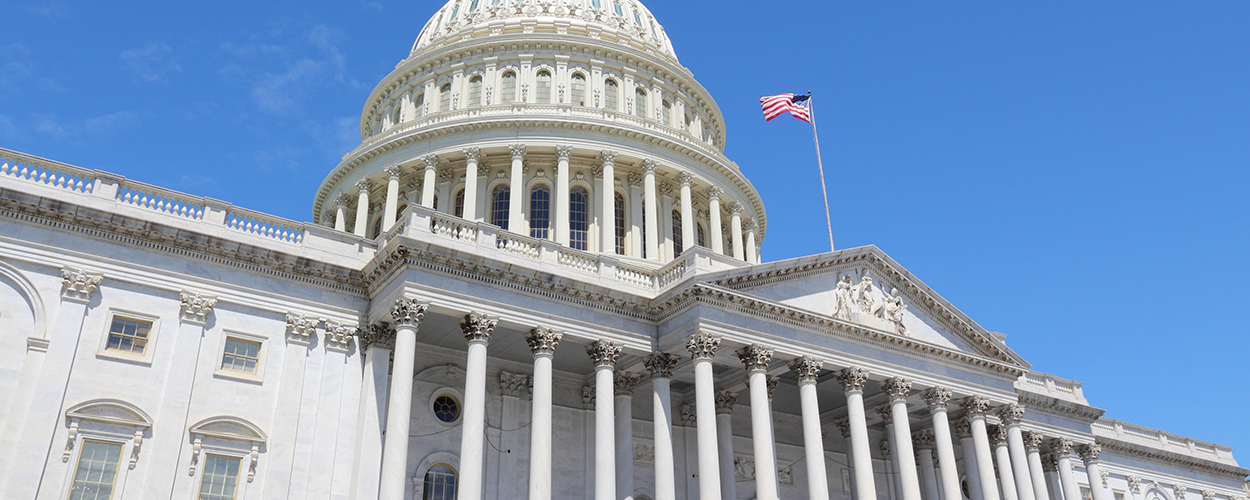
The Music Modernization Act was introduced into the Senate in US Congress yesterday, having been introduced into the House Of Representatives late last year.
These are the legislative proposals aiming to sort out America’s much documented mechanical rights mess, which has resulted in songwriters going unpaid when their songs are played on the streaming platforms, and a plethora of lawsuits against the streaming services over those unpaid monies.
Under the MMA, a new collecting society would be established that would be empowered to provide streaming services with a blanket licence covering the so called mechanical rights in any songs not otherwise covered by a digital company’s direct deals with music publishers.
It would also overhaul the way rates are set whenever song rights are licensed through a collecting society in the US, in a way that should see songwriters and publishers earn more. That would include the licensing of performing rights as well as mechanical rights.
The act was initially proposed in the House Of Representatives by Republican Doug Collins and Democrat Hakeem Jeffries. Its key backers in the Senate this week were Republicans Orrin Hatch and Lamar Alexander, and Democrat Sheldon Whitehouse, with a bunch of others also co-sponsoring the bill.
In addition to cross-party support in Congress, the proposals are also backed by an assortment of organisations in the music and digital communities. Though there are critics too, with concerns raised by some songwriters, in particular over how the new mechanical rights collecting society will be governed.
Nevertheless, plenty of trade groups were ready to reaffirm their support for the MMA as it was formally introduced into the Senate. Here are some quotes for you all to enjoy.
David Israelite, CEO of the National Music Publishers Association: “The MMA is the best hope for songwriters to achieve fair royalties and payments in the digital age. We are grateful to Senators Hatch, Alexander, Whitehouse, Corker, Durbin, Coons, Isakson and Jones for their attention to the struggles of music creators and for introducing the MMA, which we hope continues to gain momentum in the Senate”.
Mike O’Neill, CEO of performing rights organisation BMI: “The Music Modernization Act is an important step forward in protecting the rights of the American songwriter … while we believe there is still more to do to protect the value of the performance right, we are encouraged by the inclusion of two important provisions that go a long way towards ensuring that songwriters and composers receive fair compensation for their creative work … While we know this bill is not yet final, it represents an unprecedented cross-industry effort to introduce comprehensive music reform, and we look forward to working with all of the interested parties to further support this much needed legislation”.
Elizabeth Matthews, CEO of performing rights organisation ASCAP: “The Music Modernization Act addresses some of the most critical issues facing America’s songwriters today, including rate court reforms and changes to the outdated music licensing system that better reflect the evolution of how people listen to music. While there is more work to be done to ensure that songwriters earn fair compensation, this legislation, like the similar bill recently introduced in the House, represents important progress in an ongoing effort on industry-wide reforms that protect the rights of music creators. We thank Senators Hatch, Whitehouse, Alexander, Durbin, Corker, Coons, Isakson and Jones for their support and we urge all parties to seize the momentum to pass these bills without delay”.
Steve Bogard, President of Nashville Songwriters Association International: “Songwriters will finally get a market-based mechanical rate standard, which should result in more equitable royalties from interactive streaming companies. Until now, we have been tied to outdated rate standards Congress first adopted for player piano rolls back in 1909. In addition, American songwriters will, for the first time, by law, receive at least half of all unclaimed digital mechanical royalties. I want to extend my deepest thanks to all of our introducing Senate sponsors. The Music Modernization Act represents the most significant copyright reform in a generation”.
Michelle Lewis, Executive Director of Songwriters Of North America: “[SONA] is THRILLED that the Senate is introducing the Music Modernization Act, which significantly moves the ball forward on legislative reform for songwriters. For too long, songwriters have been severely handicapped in the marketplace, with absurdly low payments for the use of our songs or no payments at all. The Music Modernization Act will help rectify this going forward. SONA is very thankful to Senator Hatch, Senator Alexander, and the other co-sponsors of this legislation for their commitment to improving the lives of songwriters”.
Chris Harrison, CEO of the Digital Media Association: “DiMA thanks the senators for their hard work and willingness to join together in a bipartisan fashion to reform an outdated and inefficient music licensing system that serves neither music fans nor creators. We support the Music Modernization Act because it creates a blanket licence, which is critical to a modern licensing system and necessary for a rapidly growing industry. We look forward to continuing to work with the bill’s sponsors in both the House and Senate to create a music licensing system that benefits everyone. Streaming services have literally saved the music industry, delivering better experiences at a better value, and growing revenue for creators. We are glad to see Congress is looking to the streaming future and moving away from the music mess of the past”.
READ MORE ABOUT: Music Modernization Act
Thursday 25 January 2018, 12:47 | By Chris Cooke
AEG Presents opens French office
Business News Industry People Live Business

AEG Presents has opened itself a new office in Paris. Running the new operation will be Arnaud Meersseman, who will report to the AEG division’s co-CEOs in London, Steve Homer and Toby Leighton-Pope.
“The live music scene in France is incredibly vibrant and one we very much admire and it’s a real privilege to be able to set up our Paris office”, say Homer and Leighton-Pope in a joint statement. “In Arnaud we have a highly experienced leader and look forward to achieving great things together”.
Meersseman adds: “I’ve worked with Toby and Steve since they became involved in Rock en Seine and I’m very proud and excited to become part of the AEG Presents team with this new venture”.
He then adds, in possibly the longest sentence ever written: “I have always considered AEG to be best in class in developing venues and festivals that both meet the needs of today’s consumers and in the development of the Hyde Park festival build something truly befitting of the London Park, I am looking forward to taking this passion for excellence into the French market and I’m confident we can do some excellent work with both international and French artists as the new office gets underway”.
Phew. Meersseman has nearly fifteen years of experience in the concert promotion game, most recently serving as Managing Director of the MIALA/Fimalac group.
READ MORE ABOUT: AEG
Thursday 25 January 2018, 12:45 | By Chris Cooke
YouTube includes ‘non-disparagement agreements’ in its artist deals, says Bloomberg
Business News Digital

YouTube has included ‘non-disparagement agreements’ in partnership deals it has struck up with various artists, according to sources who have spoken to Bloomberg.
Presumably those artists wouldn’t be able to admit to having entered into such ‘non-disparagement agreements’ as a result of concurrent ‘non-disclosure agreements’. All these NDAs. I wonder if there’s a ‘no-dick-moves agreement’ clause in there too? Probably is since all that Logan Paul hoo haa.
The ‘non-disparagement agreements’ have apparently been included in deals where YouTube agrees to pay for video production and marketing costs on behalf of certain artists. Given all the “fuck YouTube and its fucking fucked up fucking fuck fuck” sentiment that has been coming out of the music community in recent years, the inclusion of the “you’d better not go and diss us” clause in such contracts is probably unsurprising.
Though Bloomberg notes that, while “non-disparagement agreements are common in business … YouTube’s biggest direct competitors in music don’t require them” when likewise making a content or promotional investment into a specific artist.
The music industry has been very busy trying to get copyright law rewritten, of course, so to increase the liabilities of platforms like YouTube. Record companies and music publishers reckon that the Google site exploits a loophole in the law created by the copyright safe harbour to secure unfair terms in its deals with the music industry. Plenty of artists and songwriters agree and have backed the industry’s safe harbour reform campaign.
At the same time, lots of artists and songwriters, and labels for that matter, concurrently work with YouTube to distribute their content, build a fanbase, and even generate some income. Which can result in a bit of cognitive dissonance. Unless, of course, you’re contractually obliged to suppress your “fucking YouTube” tendencies to achieve your video making ambitions and get on a billboard at Google’s expense.
Although that does sound a bit like I’m suggesting YouTube’s ‘non-disparagement agreements’ are actually there to help artists deal with their own inner hypocrisies, rather than existing entirely for the benefit of Google’s PR machine. Look at me defending YouTube. You’ll be thinking I’ve signed some sort of ‘non-disparagement agreement’ if I’m not careful. So, just for the avoidance of doubt, fuck YouTube.
READ MORE ABOUT: YouTube
Thursday 25 January 2018, 12:44 | By Andy Malt
BBC unveils UK’s annual Eurovision contender shitshow
Artist News Media
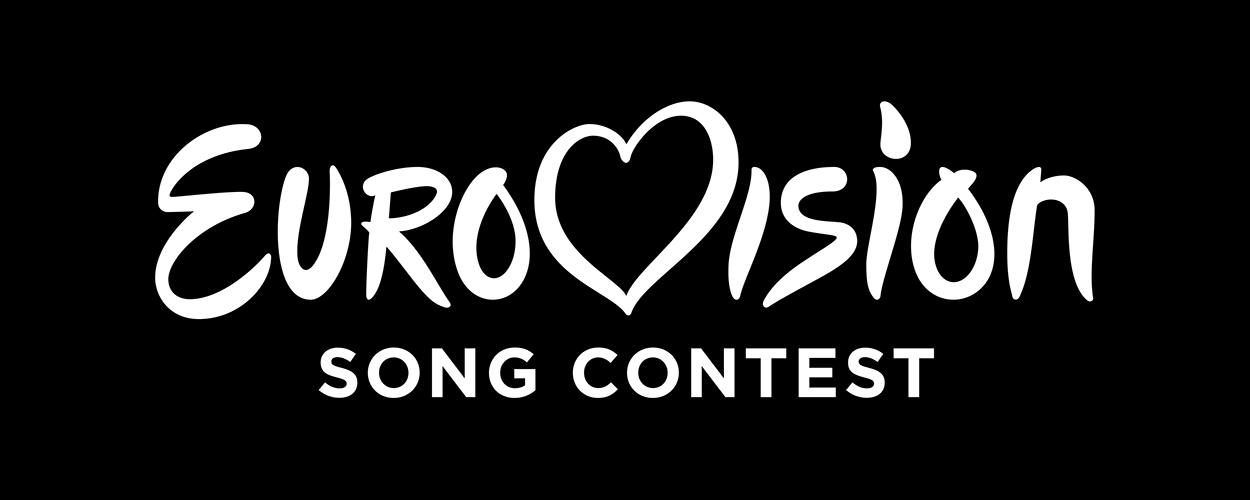
The BBC has put forward six possible acts to represent the UK at Eurovision later this year. The British public will be forced to choose from the disappointing bunch during the broadcast of ‘Eurovision: You Decide’ next month.
The six songs this year all represent different genres and are all performed by artists who remind you a bit of someone better and more famous. I think we can be fairly confident of a bottom five placing in the big contest this year, even ignoring the fact that the rest of Europe already considers us bell-ends.
Performing for your utter displeasure this year are Asanda, Goldstone, Jaz Ellington, Liam Tamne, Raya and Surie. Don’t bother remembering their names, there’s no point. If you really want, you can check them all out here, but I already have and I don’t think you should have to suffer it too.
‘Eurovision: You Decide’ will be broadcast live from the Brighton Dome on BBC Two at 7.30pm on 7 Feb. Surely someone reading this must have some sort of influence to make this whole sorry situation better.
READ MORE ABOUT: BBC | Eurovision Song Contest
Thursday 25 January 2018, 12:43 | By Andy Malt
Mark E Smith dies
Artist News

Frontman of The Fall, Mark E Smith, has died after a lengthy period of illness. He was 60.
In a statement, the band’s manager and Smith’s partner Pam Vander said last night: “It is with deep regret that we announce the passing of Mark E Smith. He passed this morning at home. A more detailed statement will follow in the next few days”.
Smith’s continuing ill health led to the cancellation of various The Fall shows in the UK, Europe and the US last year. In August, while announcing the cancellation of the American dates, Vander explained: “Mark’s current problems are connected to his throat, mouth/dental and respiratory system … it’s high time Mark put his health first and that’s what we are gonna do”.
Born in 1957 in Salford, Smith formed The Fall aged nineteen in 1976 with three friends: Martin Bramah, Una Baines and Tony Friel. He quickly quit his job in order to focus full time on the band, which he did with keen focus for the next four decades.
Smith’s authoritarian approach to band leadership led to many changes in the outfit’s line-up over the years, either through people being fired or quitting. A total of 66 different members passed through the group during their 40 year history. By 1979, the other three original members were all gone, leaving Smith to take full charge of the band’s future.
A then sixteen year old Marc Riley replaced Tony Friel on bass in 1978. In an interview with Adam Buxton in 2016, he said: “The second best thing that ever happened to me professionally was being asked the join The Fall. The best thing was being kicked out”.
His firing came in 1983, after he and Smith fell out during an Australian tour. Smith subsequently wrote a song about him called ‘Hey! Marc Riley’, which contained the lyrics, “We’ve always known him as a bit of a dancer. And we all know him as a pillock”. Riley responded with his own song, ‘Jumper Clown’.
Smith’s ability to throw around nasty, often funny, insults – both in his lyrics and in interviews – certainly helped to maintain an interest in him and his work. However, it was the uniqueness of The Fall’s music, built around Smith’s personality (necessarily, thanks to the high turnover of band members) and his flair for lyrical wit and insight, which maintained their popularity for so many years.
The band released 32 studio albums, most recently last year’s ‘New Facts Emerge’. There were an equal number of live albums, plus numerous other releases. Smith also found time for two solo albums, and various collaborations, including with Gorillaz and Coldcut.
Last March, the BBC accidentally announced Smith’s death prematurely on Twitter, when it was actually his 60th birthday. He later told The Guardian: “Obviously it was the BBC, the idiots. It was stopped in minutes by Fall fans. I was still ill around that time but was starting to feel better and somebody comes in and says, ‘by the way, you’re dead'”.
Smith was married three times. First to former Fall lead guitarist Brix Smith from 1983 to 1989, and then to Fall fanclub employee Saffron Prior from 1991 to 1995. He and Fall keyboard player Elena Poulou married in 2001, before splitting in 2016.
READ MORE ABOUT: Mark E Smith | The Fall
Thursday 25 January 2018, 12:42 | By Andy Malt
Slits documentary to be screened in UK cinemas
Artist News Releases

I had flu a few months ago, and while I was stuck in bed feeling sorry for myself, I read Viv Albertine’s autobiography, ‘Clothes, Clothes, Clothes. Music, Music, Music. Boys, Boys, Boys’. You should read it, it’s a great book.
By the end of it, you’ll probably be thinking, “that was great, I would really like to experience more things related to The Slits”. And, well, if you time it right, you might be able to head straight out to the cinema to watch a new documentary about them.
First screened at last year’s London Film Festival, ‘Here To Be Heard: The Story Of The Slits’ will be shown in cinemas around the UK in March and April this year. It will be released on DVD shortly afterwards.
Watch a trailer for the film here:
And here are the dates for all the upcoming screenings:
29 Mar: Croydon, David Lean Cinema
31 Mar: Liverpool, British Music Experience
14 Apr: London, Hackney Picturehouse
15 Apr: London, Brixton Ritzy
16 Apr: Brighton, Duke Of York
17 Apr: Birmingham, MAC
18 Apr: Derby, Quad
19 Apr: Nottingham, Broadway
20 Apr: Sheffield, Showroom
21 Apr: Manchester, Home
22 Apr: Glasgow, GFT
READ MORE ABOUT: The Slits
Thursday 25 January 2018, 12:40 | By Andy Malt
Elton John announces farewell tour
Artist News Gigs & Festivals
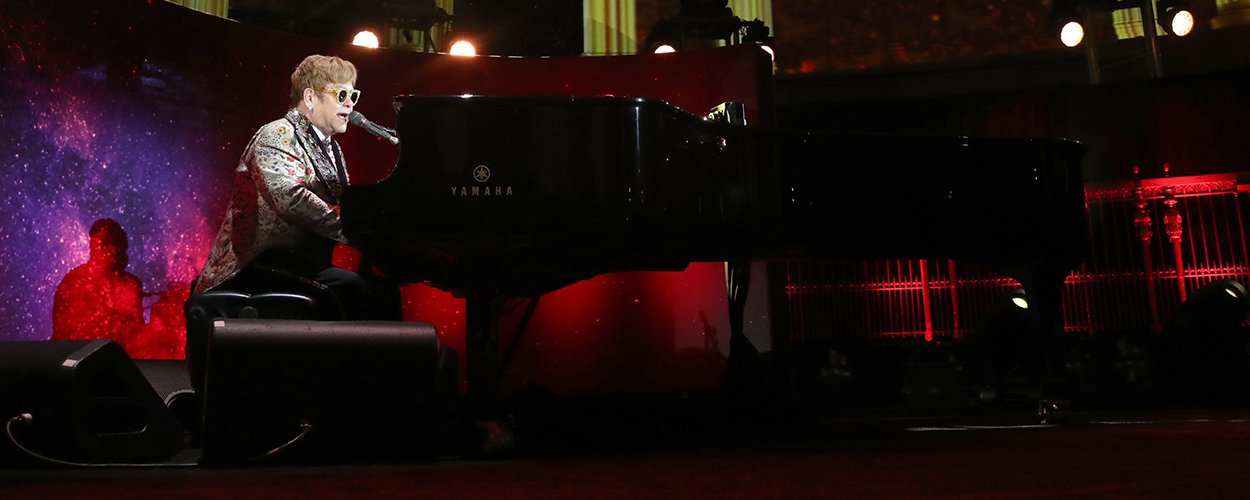
Elton John has announced that he is retiring from touring. Although not before he’s been out on a three year farewell tour.
The ‘Farewell Yellow Brick Road’ tour is set to begin in the US in September this year, eventually reaching the UK in late 2020. The musician will play more than 300 shows in total, before concluding the venture in 2021.
He initially teased the announcement yesterday with the message on his website: “I’ve finally decided my future lies…” Which sort of sounds like he’s identified every lie he plans to tell in the future. He then subsequently announced his farewell tour via a virtual reality livestream on YouTube. We don’t know whether that was one of the lies. Though it if was, it would only be a virtual reality lie. So not a real lie. So let’s assume it’s happening.
“It’s time to come off the road so I can fully embrace the next important chapter of my life”, he said, before then talking about his next three years on the road. “Performing live fuels me and I’m ecstatic and humbled to continue to play to audiences across the globe. I plan to bring the passion and creativity that has entertained my fans for decades to my final tour. After the tour finishes, I’m very much looking forward to closing off that chapter of my life by saying farewell to life on the road. I need to dedicate more time to raising my children”.
The announcement comes as John gets ready to complete his latest Las Vegas residency, ‘The Million Dollar Piano’. Having started in September 2011, the final performance of that show will take place at Caesars Palace on 19 May this year.
Exact UK dates for the farewell tour are yet to be announced, but it has been confirmed that tickets for them will go on sale in September this year. So make a note of that. Unless that was another lie.
Watch the tour announcement here:
READ MORE ABOUT: Elton John
Thursday 25 January 2018, 12:39 | By Andy Malt
One Liners: Amazon, Lily Allen, Sting & Shaggy, more
Artist News Business News Digital Gigs & Festivals One Liners Releases

Other notable announcements and developments today…
• Amazon Music Unlimited will be arriving in Australia and New Zealand on 1 Feb. “We’re THRILLED to bring an entirely new world of music streaming possibilities to listeners in Australia and New Zealand”, says Amazon Music’s Head Of International Expansion, Sean McMullan.
• Lily Allen has released the video for her new single, ‘Trigger Bang’, featuring Giggs. Her new album, ‘No Shame’, will be out this summer. She’s also announced three live shows in Manchester, London and Glasgow in March.
• Just like you’ve always wanted, Sting and Shaggy have teamed up to record an album. Titled ’44/876′, it’ll be out on 20 Apr. First single, ‘Don’t Make Me Wait’, is out now.
• George Ezra has released the video for his new single ‘Paradise’. The track is the first to be taken from forthcoming new album, ‘Staying At Tamara’s’.
• Jhene Aiko has released a video for a remix of her track ‘Sativa’. In addition to vocals from Rae Sremmurd’s Swae Lee, the new version also has a verse from his bandmate Slim Jxmmi.
• Alice Glass has released new track ‘Cease And Desist’. “This song is a call to arms for all survivors”, she says. “We need to fight back against those who have victimised us and against the feelings that tell us to give up inside”.
• Cabbage have announced that they will release their debut album, ‘Nihilistic Glamour Shots’, on 30 Mar. They’re also about to head out on a UK tour, including a date at the 100 Club in London on 8 Feb.
• The Damned will release their first album for ten years, ‘Evil Spirits’, on 13 Apr. First single, ‘Standing On The Edge Of Tomorrow’, is out now.
• Susanna has released her version of Lou Reed’s ‘Perfect Day’, taken from her new covers album, ‘Go Dig My Grave’, which is out on 9 Feb.
• Check out our weekly Spotify playlist of new music featured in the CMU Daily – updated every Friday.
READ MORE ABOUT: Alice Glass | Amazon | Cabbage | George Ezra | Jhene Aiko | Lily Allen | Shaggy | Sting | Susanna | The Damned
Thursday 25 January 2018, 12:38 | By Andy Malt
Jack White tells fans to lock phones away at upcoming shows
And Finally Artist News Gigs & Festivals Live Business

Jack White has become the latest artist to ban mobile phones from his live shows. He said in a statement that he wants his upcoming US dates to be a “100% human experience”.
A statement informs fans that White and promoter Live Nation “think you’ll enjoy looking up from your gadgets for a little while and experience music and our shared love of it IN PERSON”.
While some artists’ phone bans don’t stretch much beyond putting up a few signs, ticketholders at White’s shows will be required to put their phones in a Yondr phone pouch. This allows fans to keep their phones with them, although they will not be able to access them while watching the performance.
Those unable to go the full distance without tweeting or adding something to their shopping list will be able to get into the locked bags in special areas outside the main auditorium.
Of course, people like to share photos and video of shows they attend. White recognises that, and has arranged for official photos of each show to be posted on his website immediately afterwards. “Repost our photos and videos as much as you want and enjoy a phone-free, 100% human experience”, says the statement. I think people actually like to share their own shitty photos, but rules are rules.
Exactly what will happen if someone is found to have snuck a phone into a show without locking it in a bag isn’t clear. Last year, A Perfect Circle had fans caught taking photos while the band performed ejected from venues.
READ MORE ABOUT: Jack White
Thursday 25 January 2018, 11:06 | By Andy Malt
Approved: Tommy Cash
CMU Approved

Who or what is Tommy Cash? I’m not altogether sure. His hyped up take on rap and hip hop – accentuated by numerous accompanying music videos – might be a joke or some kind of weird art project. But equally, it might be entirely serious.
Whether it’s one or another, or something entirely different, I’m pretty sure it’s good. Sometimes it’s just easier to take things at face value. Let’s do that and just say that Tommy Cash is a rapper from Estonia.
Last year he told The Guardian that he’d grown up in a poor area of Estonian capital Tallinn. He didn’t discover rap until signing up for freestyle dance classes while at school. After that, it seems to have enveloped him. Meanwhile, a love of experimental film has fed more and more into his visual style.
If you’ve come across Tommy Cash before, you’ll probably remember him. If you’ve seen one of his videos, you’ll certainly remember that – particularly last year’s viral hit ‘Winaloto’. Recently, you may well have heard him guesting on ‘Delicious’ from Charli XCX’s ‘Pop 2′ mixtape’. His latest solo release, ‘Pussy Money Weed’, is produced by PC Music’s AG Cook and taken from a forthcoming new album.
What follows is, I am fairly confident in saying, the most striking music video you will watch this year. “You can still be hot even when you are dancing on blades in a deserted zoo on Mars”, says Cash. That probably won’t make sense right now. But watch here. Then it will. Although I can’t promise you won’t still be left with feelings of unease and confusion.
Stay up to date with all of the artists featured in the CMU Approved column by subscribing to our Spotify playlist.
READ MORE ABOUT: Tommy Cash
Wednesday 24 January 2018, 12:16 | By Chris Cooke
Spotify investor says streaming market will quadruple in size to $40 billion by 2025
Business News Digital Top Stories

As Spotify preps for its long anticipated stock market listing, an investor in the digital music company has told his financial backers that streaming music is definitely the business, that it can only boom from here, and that’s good news for everyone. Except traditional radio.
David Fiszel, founder of New York-based Honeycomb Asset Management, bigged up all things Spotify in a letter to his investors sent late last year, and which has now been seen by Business Insider. In it he states: “We believe streaming music will continue to grow at rates that far exceed investor expectations, with its market size quadrupling from $10 billion to $40 billion over the next eight years”.
It’s no secret that streaming music is a tricky business to be in for the loss-making service providers, what with the complexities of music licensing, the monthly royalty obligations to the music rights owners, and the costs of aggressive global growth. The aggressive global growth is required because – under the current model – streaming music is a scale game, with the business model being employed by the likes of Spotify only viable at massive scale.
If you want to be pessimistic, you can question whether even market leader Spotify can reach the kind of scale required to finally become a profitable business.
However, optimists reckon it can. And, once it’s there, the high barriers to entering the streaming market will assure a small number of key players dominate. That means they’ll ultimately be able to demand much better terms from a music industry by then utterly reliant on a small number of dominant platforms, while also starting to charge for the e-commerce, data and marketing services that are currently provided free of charge.
Obviously those with a stake in Spotify have to be optimists, especially as the stock market listing looms. “The music industry is reaching a key inflection point on both top-line and profitability”, reckons Fiszel.
“The streaming music business model is fundamentally more attractive than the previous model”, he adds, concluding: “Growth is open-ended and the ‘total addressable market’ is larger than investors expect”.
Noting that streaming has already taken the recorded music industry back into growth after fifteen years of (initially steep) decline, Fiszel says “we are still in the early stages of this evolution”. And everyone’s a winner because streaming means the average consumer is now spending more on recorded music than in the physical era.
He’s relying on Goldman Sachs – another Wall Street player whose gushing optimism about the streaming market is well known – for that last claim. “Per Goldman Sachs research” he writes, “the average consumer used to pay $50-60 per year to purchase five CDs. In the digital world, many US consumers are paying $120 per year for a $10/month subscription”.
That’s when he provides that super-glowing conclusion that “we believe streaming music will continue to grow at rates that far exceed investor expectations, with its market size quadrupling from $10 billion to $40 billion over the next eight years”. Yeah, maybe.
If you’re not sold on all this optimistic speak yet, think about the rise of the voice-activated smart speakers and how they are going to further the reach of the streaming music services! Oh, and the internet-connected car. Don’t forget the internet-connected car! “Connected cars of the future will see streaming music as a replacement for terrestrial and satellite radio”, Fiszel adds, delivering the one bit of doom in his letter, aimed at the traditional radio sector.
So, that’s all nice isn’t it? If only it can halt the flow of billion dollar mechanical royalty lawsuits in the US, maybe Spotify’s glass of water really is half full.
By the way, if you want to know how streaming music is licensed, and how money flows through the system to artists, ‘Dissecting The Digital Dollar’ is now available in printed form.
READ MORE ABOUT: Spotify
Wednesday 24 January 2018, 12:14 | By Chris Cooke
Little Mix lawsuit to test obligations of gig promoters under the Equality Act
Business News Legal Live Business

A new lawsuit against Newark-based concert promoter LHG Live could test just how far live music firms must go in order to comply with the UK’s Equality Act 2010, which states that adjustments must be made to ensure that disabled customers are not at a disadvantage.
LHG Live is facing legal action in relation to a Little Mix show it staged in Sussex last year. The mother of one Little Mix fan – Sally Reynolds – who attended the show and who is deaf, requested ahead of the concert that the promoter provide a British Sign Language interpreter. She was attending with two friends who are also deaf and who were likewise accompanying their children to the show. Reynolds said that the BSL interpreter was required to ensure she and her friends could properly experience and enjoy the concert.
The live firm initially offered an additional carer ticket for the show, saying she could use that ticket if she wanted to bring a BSL interpreter with her. However, Reynolds felt that it was the promoter’s responsibility to provide the interpreter too. To that end she applied for a court injunction to force LHG Live to provide that service. Once a lawyer was involved, the promoter quickly agreed to hire the services of Performance Interpreting to ensure Reynolds and her friends could properly experience the concert.
However, that BSL interpreter was only provided for Little Mix’s set and not the support acts. Which is why Reynolds is now taking additional legal action, arguing that by not providing a BSL interpreter for the full show, LHG Live was not fully complying with its obligations under the Equality Act.
Reynolds told the BBC: “I felt that we were really part of the Little Mix experience, but because it was so good I realised that we had missed out on the first two acts. So it was very much a disparity of experience compared with everyone else. We only got access to the last act. If you went to a film can you imagine only getting access to the last 20 minutes? We had paid for our tickets like everyone else”.
Commenting on the legalities, the lawyer representing Reynolds, Chris Fry, added: “People with sensory impairment actually want to attend musical and sporting events just as anybody else does. The fact that you have a hearing impairment or sight loss doesn’t mean that you don’t want to be at the event. So it is important that venues and promoters recognise that the legal duties to make reasonable adjustments extend to them. It is an important way of making society more inclusive”.
Commenting on the dispute, LHG Live said in a statement to the BBC: “We received a request from Sally Reynolds to supply an interpreter. We consulted with her recommended agency and agreed to provide the professional interpreter of her choice for the Little Mix show. This included specific staging and lighting, and a setlist in advance”. It then added that it also provided upgraded tickets, access to private accessible toilets and all public announcements on giant screens either side of the main stage.
Little Mix themselves are not part of the legal action, though a spokesperson for the group said: “Little Mix strongly believe their concerts should be completely inclusive for all. The band welcome all fans to their shows, including those with hearing impairment, and encourage the promoters they work with to make provisions to ensure their fans can enjoy the concert experience”.
Few would disagree that the live music industry should do everything it can to ensure its shows are fully accessible to deaf and disabled music fans, and through the work of organisations like Attitude Is Everything progress has been made in this domain in recent years. Though this case puts the spotlight on the question of quite how far venues and promoters should go to ensure deaf and disabled customers have access to the same experience, both morally and legally speaking.
READ MORE ABOUT: LHG Live | Little Mix | Sally Reynolds
Wednesday 24 January 2018, 12:13 | By Chris Cooke
Journalists hit out at LA police response to them interviewing Suge Knight
Business News Legal Media
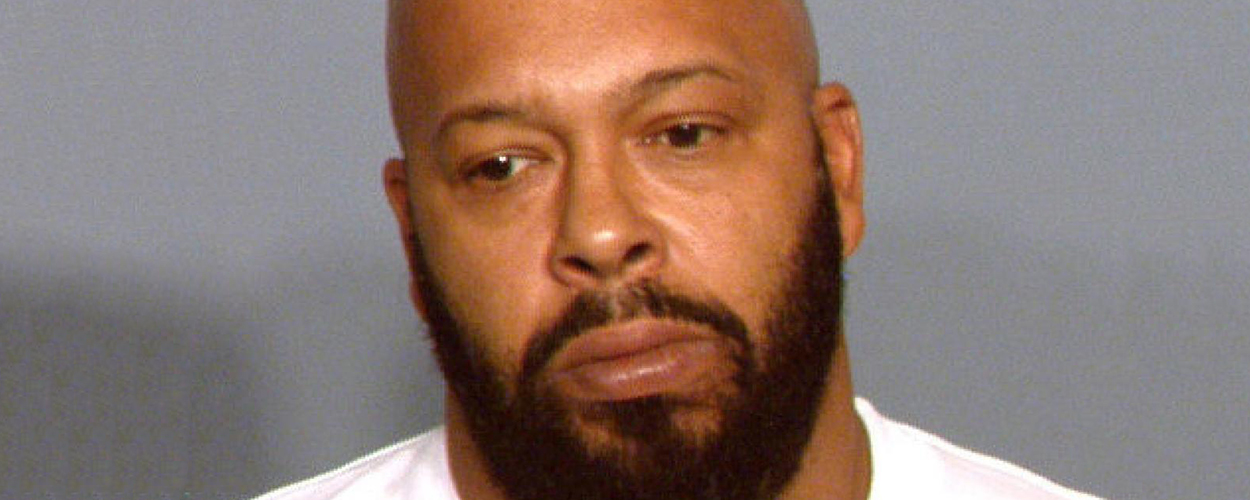
Nothing involving one-time hip hop mogul and Death Row Records founder Suge Knight is ever without drama. Two journalists involved in a TV documentary that will tell the story of the Death Row label and some its most famous artists have gone to court, accusing LA police of misconduct after officers seized files and demanded information.
Knight, of course, is currently facing murder charges in relation to the death in 2015 of a man called Terry Carter, following an incident that occurred near the set of the NWA biopic ‘Straight Outta Compton’, which was then in production.
Journalists Nora Donaghy and William Erb interviewed the incarcerated Knight as part of their TV project. It seems that LA police reckon that Knight’s involvement in the programme may violate court orders relating to the murder charges.
To that end officers showed up at Donaghy and Erb’s respective homes seeking files. The journalists have also been ordered to appear before a grand jury to answer questions about their interactions with Knight.
The journalists reckon that the demands made by police, and their heavy-handed approach so far, has been inappropriate, not to mention in violation of the so called ‘shield laws’ that allow journalists to protect their sources.
According to The Hollywood Reporter, Donaghy describes in a new court filing how police showed up at her home earlier this month. “One of the officers told me that I was required by the warrant to hand over my cell phone”, she says. “They also asked me for my passcode and asked me to type the passcode into the phone in their presence to make sure it worked”.
She goes on: “Believing I had no alternative and frightened by the unexpected arrival of two homicide officers at my home, early in the morning, I gave them my iPhone and the passcode and showed them it worked”. The officers then took her phone which, Donaghy says, contains confidential correspondence relating to various journalistic investigations.
Police also showed up at Erb’s home, serving a subpoena demanding he present himself to a grand jury for questioning within days. Lawyers for the two journalists say all this police activity represents a “shocking disregard of state law” and “is the kind of gross overreaching that California’s shield law and related provisions have been designed to prevent”.
The LA District Attorney’s Office has defended the actions of the officers, while questioning the extent to which California’s shield law applies in this case. But the journalists’ lawyer Kelli Sager is having none of it.
In a motion seeking the return of seized items and a withdrawal of the grand jury subpoena, Sager writes: “The notion that government agents can seize a journalist’s cell phone, force journalists to testify about individuals who provide information to them (or who facilitated such disclosures), and engage in draconian harassment of a television production company and its personnel is the kind of thing one might expect from a third-world dictatorship”.
The motion goes on: “California’s legislature and electorate, supported by decades of court decisions, expressly and emphatically forbid these practices. Consequently, it is surprising and disappointing that – even after being provided with the legal citations contained in this Motion – the DA refused to back down, forcing [the documentary’s producer] to expend thousands of dollars in attorneys’ fees to defend the rights of its journalists”.
The legal filing then notes that all of these actions taken by the LA police seemingly relate not to the murder case against Knight, but to allegations he breached court orders by giving an interview. Which makes the heavy-handed approach of the officers even more inappropriate, Sager reckons.
“This is not a case where information is sought to locate a kidnapped child, capture a serial killer, or even convict an accused murderer”, says the court filing. “Here, what is at stake is the alleged violation of a court order by a prisoner in giving an interview to a documentary television producer”.
It remains to be seen how the courts respond to the journalists’ requests in this extra sideshow to Knight’s murder trial, which is also now imminent.
READ MORE ABOUT: Nora Donaghy | Suge Knight | William Erb
Wednesday 24 January 2018, 12:11 | By Chris Cooke
Family of Slipknot bassist settle negligence action against his former doctor
Artist News Legal

The family of late Slipknot bassist Paul Gray have settled a legal dispute with a doctor accused of negligence.
Gray’s wife Brenna sued Dr Daniel Baldi over her husband’s 2010 death as a result of an accidental drug overdose, claiming that the doctor was negligent in his treatment of the Slipknot man’s addictions. But the lawsuit was dismissed because she had taken too long to go legal.
However, it then transpired that the couple’s daughter, unborn at the time of Gray’s death, could sue Baldi, because there is more flexibility on how quickly litigation needs to be filed when the plaintiff is a minor.
A new lawsuit was filed, and it is that legal action – which also named some other health care providers as defendants – that has now been settled. Papers were filed with the courts in Iowa on Monday confirming that a settlement had now been reached. A le
READ MORE ABOUT: Paul Gray | Slipknot
Wednesday 24 January 2018, 12:09 | By Chris Cooke
YouTube unites artist content under single subscription
Business News Digital

YouTube is further ramping up the Official Artist Channels scheme it launched last year, which aims to bring all content relating to any one artist on the YouTube platform into one easily navigable place.
Artists might have multiple channels on YouTube – for example one managed by Vevo for official videos and another managed by label or management for promotional content – and they may also appear on third party channels too. The Official Artist Channels set up aims to make it easier for users to find all the content around any one act.
The innovation this week is that fans will now be able to subscribe to these aggregated channels, the aim being that a fan can get updates on all content relating to an artist via one subscription. “Uniting subscribers under one channel means you’ll be able to go deeper and explore all of the content from the artists you love”, says YouTube in a blog post on the new development.
“For fans looking for music from the artists they love, finding the Official Artist Channel for an artist will soon be as simple as searching for their name on YouTube”, it goes on. “You can also identify the Official Artist Channel by looking for the artist icon (the musical note) in YouTube search and on the channel page”.
Quite what the expansion of the Official Artist Channels scheme means for YouTube’s relationship with Vevo isn’t clear. The Sony/Universal-owned music video firm manages the ‘official’ YouTube channels of many artists on behalf of their labels. But the official Vevo artist channels now form part of the official YouTube channels. And that’s official.
Then, of course, there are YouTube’s much rumoured plans to launch a standalone music streaming service this year. Could this all be linked to that? Though Chief Business Officer Robert Kyncl did recently play down those rumours.
Anyway, here’s a short video explaining Official Artist Channels:
READ MORE ABOUT: YouTube




